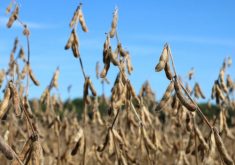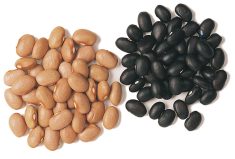Results from a five-year cluster of research will advance work on issues like root rot and develop locally adapted pulse varieties, according to the Manitoba Pulse and Soybean Growers (MPSG).
The group recently released the results of studies it co-funded through the Pulse Science Cluster. MPSG contributed just over $1.4 million to eight projects within the cluster, although most of the funding came from the Canadian Agricultural Partnership.
The Manitoba Pulse and Soybean Growers spent five years looking into topics ranging from dry beans with better cooking quality to pulse varieties with better disease resistance and yield. Results of that work are now available.
Read Also

MANITOBA AG DAYS: Unmoved China tariffs worrying for Manitoba pork
Manitoba pork producers and Agriculture Minister Ron Kostyshyn have both noted lack of progress on Chinese tariffs on pork.
Insights into root rot in peas and lentils were of particular note, said executive director Daryl Domitruk.
The study, completed March 23, found that mid-June rains were the biggest driver of root rot in peas. It also explored how genetic resistance and management strategies could work together to fight root rot.
These insights will help researchers decide what to study next, according to Domitruk.
“It’s going to take a long time to solve this problem, and we can only go about it step by step,” he said.
Research on dry bean varietal development from Agriculture and Agri-food Canada’s station in Morden also showed value and should continue, Domitruk said.
“We should continue breeding local varieties that are adapted to Manitoba and not rely on other entities,” he said, adding his commodity group would narrow the focus of the research to classes of beans most relevant to the Manitoba industry, such as black, pinto and navy beans.
Researchers from AAFC Morden screened dry bean varieties for disease resistance, yield potential and optimal seed quality as part of the project. MPSG staff will interpret the results and combine them with other studies to develop articles for farmers, Domitruk said.
Another five-year cluster of projects is awaiting approval under the new Sustainable Canadian Agricultural Partnership agreement between the province and federal government, Domitruk said.
Under the new cluster, MPSG has adjusted its focus to fund only projects related to issues “behind the farm gate,” according to Domitruk. The previous cluster included projects related to pulse nutrition and processing.
“There’s enough to worry about behind the farm gate. It kind of takes all of our resources,” he said. “We feel that there should be other entities in the supply chain, whether it’s processors or the health care complex itself, funding some of that work.”
Research summaries and technical reports are available through the MPSG website.


















